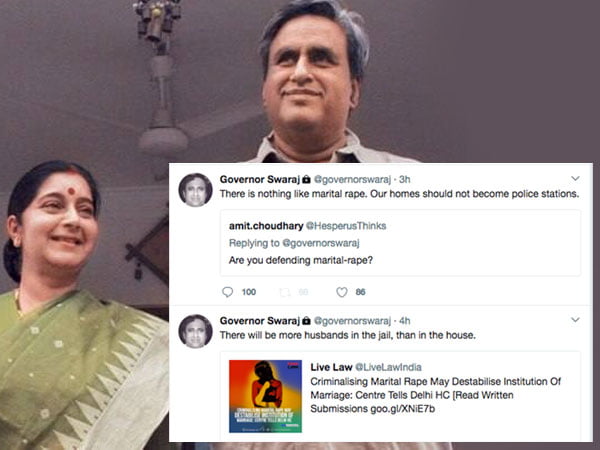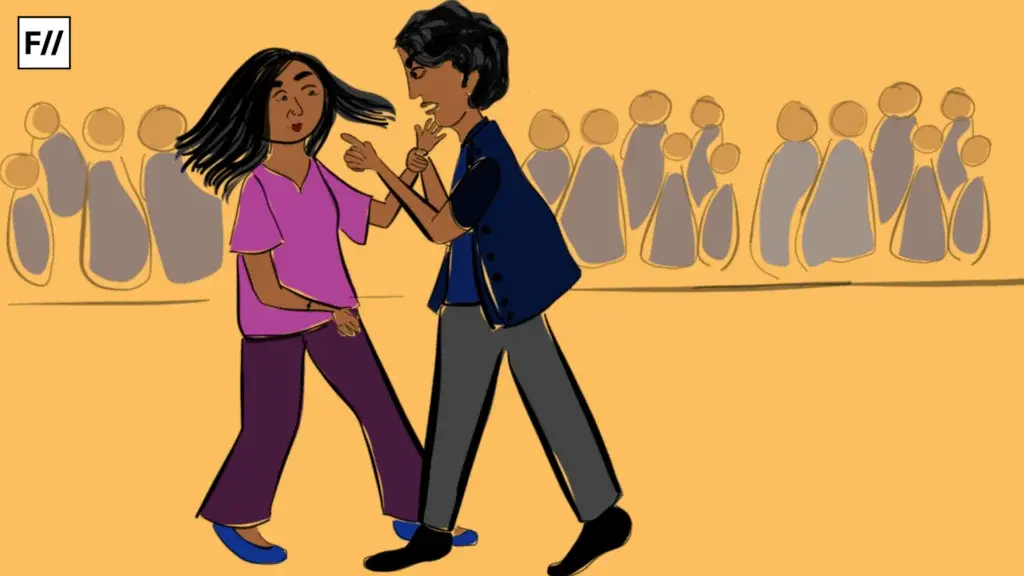In the past decade, it took several unfortunate incidents of rape and sexual assault to bring the issue of victim-blaming to the forefront. In January 2017 itself, politician Abu Azmi was slammed for his sexist comment on survivors of molestation on New Year’s Eve in Bangalore.
Yet in November, when actress and politician Kirron Kher spoke on how the Chandigarh rape survivor should have been careful of who she gets into a transport with, there was a sudden change in a significant part of significant public demeanour. “She is not blaming the victim, she is only saying what mothers tell their daughters”, became the prime standpoint.
Also Read: 10 Effective Ways In Which You Could Avoid Molestation And Rape
Why was Kher excused of victim-blaming?
The broadest way to reason this would be lack of relatability. Perhaps it is because victim-blaming as an issue has only received widespread coverage recently. Consequentially very often people have no idea what constitutes victim-blaming or what it really looks like on a day-to-day basis.
The discourse on the issue is reduced to visibly unreasonable accusation or conflict of interest. Kirron Kher has absolutely no vested interest in the Chandigarh rape case. Does that absolve her? Unfortunately, this is exactly what gaslighting looks like in our most regular circumstances.
When we think of gaslighting, we think of outright manipulation by an abuser to shift the blame of abuse to the survivor. But gaslighting can be masked behind the facade of victim-blaming, reducing abusive experiences of the survivor or even subtle coercion. Any attempt to make a survivor question the validity of his or her victimhood by negatively influencing their ability to identify abuse is gaslighting.
Gaslighting is both abuse as well as a catalyst to abuse. It can occur even when the perpetrator was not a part of the original abuse. Kher and Azmi were not present when the respective unfortunate incidents took place. Neither of them had any knowledge about it.
One reason why we do not fully grasp what is gaslighting is because we do not fully grasp what is abuse. The way we are conditioned, we often fail to realise abuse need not only be from one’s spouse or in-laws nor is it always physical. Verbal abuse of which gaslighting is a part, can wreck a person’s mental health which has a great affect on their daily conduct.
Both Gandhi and Kaushal place a burden on victims/survivorss to tolerate abuse for a supposed greater cause.
Abuse can be subtle or violent and gaslighting generally falls in the former category. Much like abuse, gaslighting can also come from parents, teachers and pretty much anyone with an influence over the survivor.
Gaslighting by public personas somewhat holds true the same way. Politicians, celebrities and public servants are often people with an undeniable amount of influential power over masses. Their actions, their support or dissent and their perceptions can sway opinions.
Kher is a politician. She is not everyone’s mother so assigning random family equivalency to her is moot. Her relationship to her audience which includes potential abusers or rapists bears greater responsibility.
Sometimes gaslighting by politicians may occur implicitly without any direct mention of the addressee. Both Maneka Gandhi and Swaraj Kaushal earned the ire of trivializing marital rape. Gandhi tried to dismiss marital rape by placing the focus on “level of education/illiteracy, poverty, myriad social customs and values, religious beliefs, mindset of the society to treat the marriage as a sacrament”.
Kaushal on the other hand tweeted, how recognizing marital rape will turn homes to police stations and contribute to more husbands ending up in jail. Outside of legal recognition, in either case there is no direct denial of the existence of marital rape actually happening and the jab at victims/survivors of marital rape is unpronounced. Both Gandhi and Kaushal place a burden on victims/survivors to tolerate abuse for a supposed greater cause.
Also Read: Dear Mrs. Maneka Gandhi, Marital Rape Is Rape. Period
Visibility and recognition of gaslighting by persons in power can largely depend on the cultural fabric of a place too. Indian society as its tradition goes, has taught absolute obedience from those influentially inferior.
While the context of obedience to spouses has only received light in recent years, we are yet to identify this pattern of condoning the wrong in other relationships too. The exact same thing reflects in how we view gaslighting by those in prominence as well.
Finding a resonance with Kher’s words with how mothers warn their daughters, colours understanding due to the general taboo against questioning parents too much. It inhibits recognition of gaslighting because our minds associate it with something that we have been taught to deem true.
Kher’s stance is merely seen as a passing comment because as a society we are desensitized to the subtlety of gaslighting placing it on the more aggressive instances. Yet it is this subtlety that is more insidious. It is our perception of regular, casual discourses that influences what we generally associate with a situation.
We are likely to be less cautious of our approach in casual conversations which affects greatly how we view the entire incident. It is this very unconscious misguided sense of judgment that in turn enables gaslighting to proliferate simply because we cannot identify with it. Words like that of Kher is exactly what influences one to think the onus of blame lies on the survivor.
Also Read: Gaslighting: A Personal Account Of Self Perception
Featured Image Credit: iDiva
About the author(s)
A queer activist, feminist and former lawyer with an active interest in humanitarian causes. She loves photography, revising her Spanish lessons, studying cultures and history, and travelling (or reading about it when she can't).




